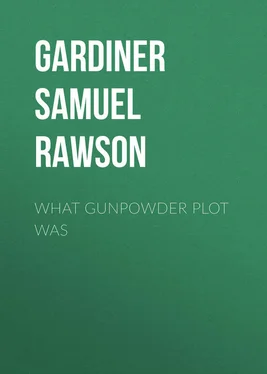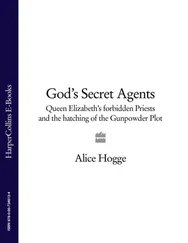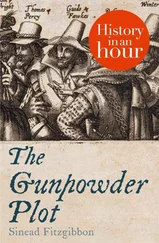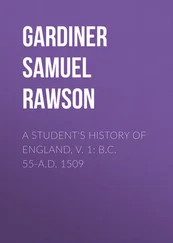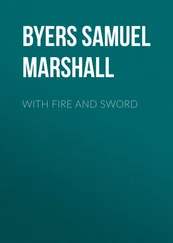Samuel Gardiner - What Gunpowder Plot Was
Здесь есть возможность читать онлайн «Samuel Gardiner - What Gunpowder Plot Was» — ознакомительный отрывок электронной книги совершенно бесплатно, а после прочтения отрывка купить полную версию. В некоторых случаях можно слушать аудио, скачать через торрент в формате fb2 и присутствует краткое содержание. Жанр: foreign_antique, foreign_prose, на английском языке. Описание произведения, (предисловие) а так же отзывы посетителей доступны на портале библиотеки ЛибКат.
- Название:What Gunpowder Plot Was
- Автор:
- Жанр:
- Год:неизвестен
- ISBN:нет данных
- Рейтинг книги:3 / 5. Голосов: 1
-
Избранное:Добавить в избранное
- Отзывы:
-
Ваша оценка:
- 60
- 1
- 2
- 3
- 4
- 5
What Gunpowder Plot Was: краткое содержание, описание и аннотация
Предлагаем к чтению аннотацию, описание, краткое содержание или предисловие (зависит от того, что написал сам автор книги «What Gunpowder Plot Was»). Если вы не нашли необходимую информацию о книге — напишите в комментариях, мы постараемся отыскать её.
What Gunpowder Plot Was — читать онлайн ознакомительный отрывок
Ниже представлен текст книги, разбитый по страницам. Система сохранения места последней прочитанной страницы, позволяет с удобством читать онлайн бесплатно книгу «What Gunpowder Plot Was», без необходимости каждый раз заново искать на чём Вы остановились. Поставьте закладку, и сможете в любой момент перейти на страницу, на которой закончили чтение.
Интервал:
Закладка:
“Was it not agreed,” asks Coke, “the same day that the act should have been done, the same day, or soon after, the person of the Lady Elizabeth should have been surprised?” “He confesseth,” Fawkes is stated to have said, “that the same day this detestable act should have been performed the same day should other of their confederacy have surprised the Lady Elizabeth.” Yet before setting down Fawkes’s replies as a fabrication of the Government, let us remember how evidence of this kind is taken and reported. If we take up the report of a criminal trial in a modern newspaper we shall find, for the most part, a flowing narrative put into the mouths of witnesses. John Jones, let us say, is represented as giving some such evidence as this: “I woke at two o’clock in the morning, and, looking out of window, saw by the light of the moon John Smith opening the stable door,” &c. Nobody who has attended a law court imagines John Jones to have used these consecutive words. Questions are put to him by the examining counsel. When did you wake? Did you see anyone at the stable door? How came you to be able to see him, and so forth; and it is by combining these questions with the Yes and No, and other brief replies made by the witness, that the reporter constructs his narrative with no appreciable violation of truth. Is it not reasonable to suppose that the same practice prevailed in 1605? Fawkes, I suppose, answered to Coke’s question, “Yes, others of the confederates proposed to surprise her,” or something of the sort, and the result was the combination of question and answer which is given above.
What, however, was the relation between the examination of the 8th and the declaration of the 17th? Father Gerard has printed them side by side, 88 88 Gerard , p. 268.
and it is impossible to deny that the latter is founded on the former. Some paragraphs of the examination are not represented in the declaration, but these are paragraphs of no practical importance, and those that are represented are modified. The modifications admitted, however, are all consistent with what is a very probable supposition, that the Government wanted to get Fawkes’s previous statements collected in one paper. He had given his account of the plot on one occasion, the names of the plotters on another, and had stated on a third that they were to be classified in three divisions – those who worked first at the mine, those who worked at it afterwards, and those who did not work at all. If the Government drew up a form combining the three statements and omitting immaterial matter, and got Fawkes to sign it, this would fully account for the form in which we find the declaration. At the present day, we should object to receive evidence from a man who had been tortured once and might be tortured again; but as this declaration adds nothing of any importance to our previous knowledge, it is unnecessary to recur to first principles on this occasion. 89 89 The erasure of Winter’s name, and the substitution of that of Keyes, will be dealt with later.
Winter’s examination of the 23rd, as treated by Father Gerard, raises a more difficult question. The document itself is at Hatfield, and there is a copy of it in the ‘Gunpowder Plot Book’ in the Public Record Office. “The ‘original’ document,” writes Father Gerard, 90 90 Gerard , p. 168.
“is at Hatfield, and agrees in general so exactly with the copy as to demonstrate the identity of their origin. But while, as we have seen, the ‘copy’ is dated November 23rd, the ‘original’ is dated on the 25th.” In a note, we are told ‘that this is not a slip of the pen is evidenced by the fact that Winter first wrote 23, and then corrected it to 25.’ To return to Father Gerard’s text, we find, “On a circumstance so irregular, light is possibly thrown by a letter from Waad, the Lieutenant of the Tower, to Cecil 91 91 Father Gerard appears to show his dislike of Salisbury by denying him his title.
Конец ознакомительного фрагмента.
Текст предоставлен ООО «ЛитРес».
Прочитайте эту книгу целиком, купив полную легальную версию на ЛитРес.
Безопасно оплатить книгу можно банковской картой Visa, MasterCard, Maestro, со счета мобильного телефона, с платежного терминала, в салоне МТС или Связной, через PayPal, WebMoney, Яндекс.Деньги, QIWI Кошелек, бонусными картами или другим удобным Вам способом.
1
London: Osgood, McIlvaine & Co., 1897.
2
Gerard , p. 48.
3
Ib. p. 51, note 2.
4
Goodman , i. 102.
5
Gerard , pp. 46, 47.
6
Gerard , p. 159.
7
I imagine that the notes in Roman type proceed from Wood’s correspondent, and that Fulman’s marginal questions are omitted; but Father Gerard is not clear on this.
8
I.e. , the second Earl.
9
? this.
10
Athenæ , iii. 902.
11
Edin. Review , January 1897, p. 192.
12
This is a mistake. The fine of 3,000 l. was imposed for his part in the Essex rebellion. (See Jardine , p. 31.)
13
Off and on, a fortnight at the end of January and beginning of February, and then again probably for a very short time in March.
14
Fawkes was absent part of the time.
15
Mrs. Everett Green in her ‘Calendar of Domestic State Papers,’ adds a sixth ( Gunpowder Plot Book , No. 50); but this is manifestly the deposition of November 17. It must be remembered that, when she produced this volume, Mrs. Everett Green was quite new to the work. She was deceived by an indorsement in the handwriting of the eighteenth century, assigning the document to the 8th.
16
The words between brackets are inserted in another hand.
17
It was not actually hired till about Lady Day, 1605.
18
Inserted in the same hand as that in which the words about the cellar were written. It will be observed that the insertion cannot serve any one’s purpose.
19
Gracechurch Street.
20
A mistake for Monday if midnight is to be reckoned with the day preceding it.
21
The remainder of the draft is occupied with the discovery of the plot.
22
Proclamation Book, R.O. , p. 114.
23
Bancroft to Salisbury, Nov. 5. Popham to Salisbury, Nov. 5 — G. P. B. Nos. 7, 9.
24
Points and names of persons. — S. P. Dom. xvi. 9, 10.
25
Popham to Salisbury, November 5. ( G. P. B. No. 10.) The P.S. only is of the 6th.
26
Narrative, G. P. B. No. 129.
27
In a letter of advice sent to the Nuncio at Paris, on Sept. 10/20, he is distinctly spoken of as a Catholic, as well as Worcester. — Roman Transcripts, R.O.
Читать дальшеИнтервал:
Закладка:
Похожие книги на «What Gunpowder Plot Was»
Представляем Вашему вниманию похожие книги на «What Gunpowder Plot Was» списком для выбора. Мы отобрали схожую по названию и смыслу литературу в надежде предоставить читателям больше вариантов отыскать новые, интересные, ещё непрочитанные произведения.
Обсуждение, отзывы о книге «What Gunpowder Plot Was» и просто собственные мнения читателей. Оставьте ваши комментарии, напишите, что Вы думаете о произведении, его смысле или главных героях. Укажите что конкретно понравилось, а что нет, и почему Вы так считаете.
